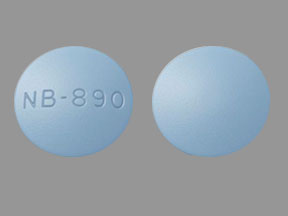Bupropion/naltrexone Interactions
There are 758 drugs known to interact with bupropion/naltrexone, along with 9 disease interactions, and 1 alcohol/food interaction. Of the total drug interactions, 219 are major, 534 are moderate, and 5 are minor.
- View all 758 medications that may interact with bupropion/naltrexone
- View bupropion/naltrexone alcohol/food interactions (1)
- View bupropion/naltrexone disease interactions (9)
Most frequently checked interactions
View interaction reports for bupropion / naltrexone and the medicines listed below.
- Abilify (aripiprazole)
- Adderall (amphetamine / dextroamphetamine)
- Aspirin Low Strength (aspirin)
- Celexa (citalopram)
- Cymbalta (duloxetine)
- Effexor (venlafaxine)
- Effexor XR (venlafaxine)
- Inderal (propranolol)
- Klonopin (clonazepam)
- Lamictal (lamotrigine)
- Latuda (lurasidone)
- Lexapro (escitalopram)
- Lithium Carbonate ER (lithium)
- Lyrica (pregabalin)
- Metoprolol Succinate ER (metoprolol)
- Metoprolol Tartrate (metoprolol)
- Paxil (paroxetine)
- Probiotic Formula (bifidobacterium infantis / lactobacillus acidophilus)
- Prozac (fluoxetine)
- Seroquel (quetiapine)
- Synthroid (levothyroxine)
- Tylenol (acetaminophen)
- Valium (diazepam)
- Vitamin B12 (cyanocobalamin)
- Vitamin C (ascorbic acid)
- Vitamin D3 (cholecalciferol)
- Vyvanse (lisdexamfetamine)
- Wellbutrin (bupropion)
- Xanax (alprazolam)
- Zoloft (sertraline)
Bupropion/naltrexone alcohol/food interactions
There is 1 alcohol/food interaction with bupropion / naltrexone.
Bupropion/naltrexone disease interactions
There are 9 disease interactions with bupropion / naltrexone which include:
- suicidality
- seizure disorders
- hepatic dysfunction
- angle closure glaucoma
- liver disease
- mixed/manic episode
- renal dysfunction
- hepatic/renal dysfunction
- weight loss
More about bupropion / naltrexone
- bupropion/naltrexone consumer information
- Compare alternatives
- Reviews (2,069)
- Side effects
- Dosage information
- During pregnancy
- Drug class: anorexiants
- En español
Related treatment guides
Drug Interaction Classification
| Highly clinically significant. Avoid combinations; the risk of the interaction outweighs the benefit. | |
| Moderately clinically significant. Usually avoid combinations; use it only under special circumstances. | |
| Minimally clinically significant. Minimize risk; assess risk and consider an alternative drug, take steps to circumvent the interaction risk and/or institute a monitoring plan. | |
| No interaction information available. |
Further information
Always consult your healthcare provider to ensure the information displayed on this page applies to your personal circumstances.


